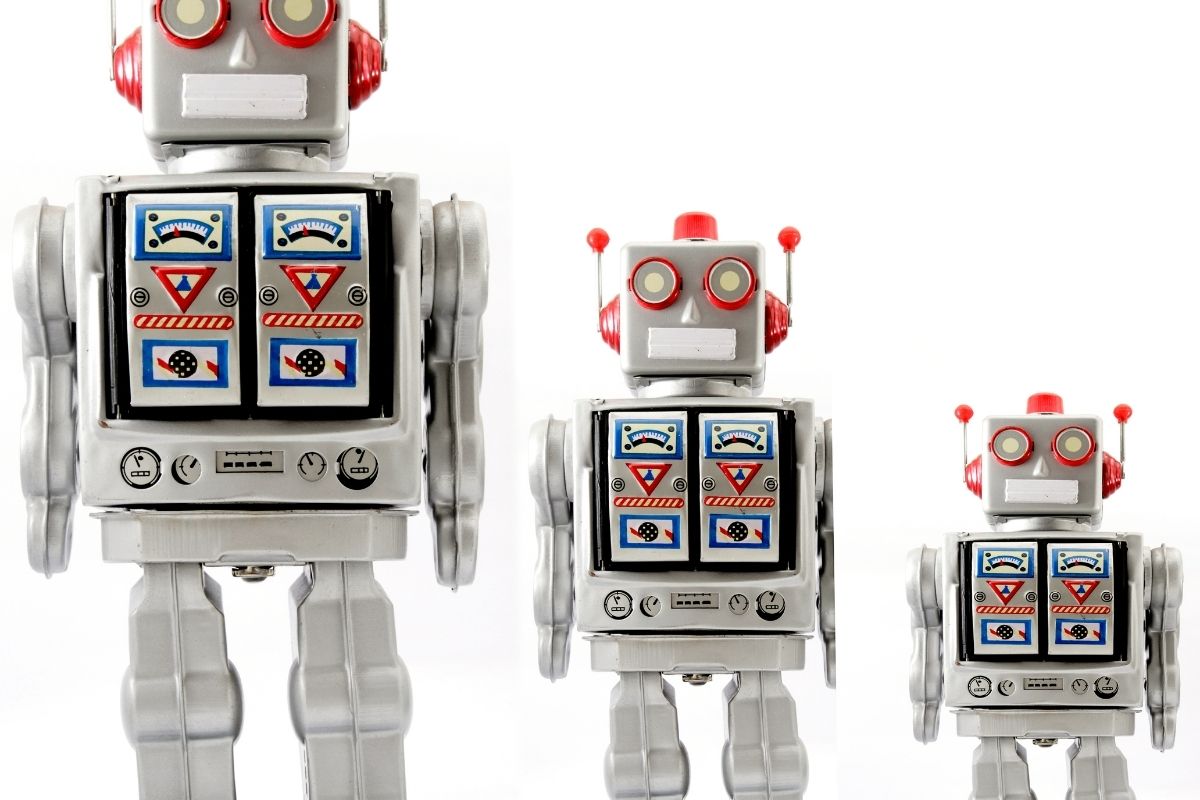Leave us a message
We usually respond within a few hours. You can also make an appointment with us for a specific date by clicking on the link to our calendar below.


If you read us, you will probably notice that we write a lot about artificial intelligence and robotisation. We hope that we are not too monothematic. If we are, we are sorry, but we consider these two topics (and, God forbid, not only us) to be the two main topics of the future at the interface: technology - business - society.
We are living in times of great progress when it comes to work automation. There is a debate going through the media as to whether automation linked to robots and machine learning will deprive a large part of humanity of work?
Some will say that this is a problem as old as the world - in 19th century England, the so-called 'Luddites' destroyed the first factory machines out of fear that they would take the work away from the workers of the manufactories, where the goods were made by hand, using craftsmanship. And although the industrial revolution initially led to the impoverishment of the poorest, it was thanks to industrialisation that the wealth and quality of life of successive generations of the lower classes of society improved significantly.
Let us try to spread the problem of the impact of automation on the labour market on the first factors and look at the arguments of two sides of the debate.
Automation will increase unemployment in the coming years:
1.the current capabilities of artificial intelligence currently allow 30 to 50 % of jobs in western economies to be automated (Martin Ford, author of „Rise of the Robots”)
2.2 The law of economics cannot be defined to indicate that technological progress always creates jobs. The fact that the 19th-century industrial revolution has shifted jobs from agriculture and factories to factories does not mean that every subsequent technological breakthrough will duplicate this pattern.
3.The most vulnerable positions, as usual in any technological revolution, are those at the lowest level. However, the AI revolution seems different - many jobs and professions of so-called professionals are also at risk. The more the structure of the tasks we perform is repetitive, the more our jobs can be robbed. Just as the jobs of warehousemen are endangered for radiologists, legal assistants and sourcers in the recruitment industry.
4.The cost of the hard-ware needed to develop robotics, such as sensors and cameras, becomes very low. It is now available not only for large corporations, but also for start-ups. So more and more business areas and companies will experiment with robotics.
Optimists believe that the development of robotics and machine learning will help people in their work and complement people in their tasks. It will not cause unemployment to rise sharply.
1.the main argument of the 'robot optimists' is that the services market knows no borders. For hundreds of years, new services have been created and the old ones are gaining more and more customers. Let us think about what services were not there literally 20 years ago? There were no blogs, streaming services with films, streaming services with music, booking services with tourist offers, there was no Uber
OK, these are all services which on the one hand are strongly "technological", on the other hand they have also created a whole lot of "analogue" workplaces - Uber drivers, call centre employees etc. If people work shorter, they necessarily have more time to spend money - the entertainment and tourism industry is growing.
2.About 100 years ago, 40% of people in the United States worked in agriculture. Today, agriculture in America is highly automated and industrialised. Only 2% of the population work in this branch of the economy. Has unemployment increased? Before the outbreak of the pandemic, in 2019, unemployment in the United States was a record low of 3.6%, which means practically full employment (only those who do not want to work and those who can afford not to).
3.Automation and robotisation change the nature of existing professional roles. A good example quoted by many commentators of robotisation is the introduction of ATMs (late 1960s and early 1970s). It reported a sharp increase in unemployment among bank cashiers and customer service staff in banks in general. However, this prediction did not come true. However, the role of cashiers has changed - from strictly operational people, cashiers have become more of a customer service person and the bank's customer service employees have become much more of a customer advisor, tailoring product solutions to their needs.
4.a somewhat dwarfing argument, but for many people, if the number of services increases (as a result of the implementation of new technology), their price will be reduced. The services will be more accessible to people, even if people earn less - their work will become cheaper in competition with robots. Nevertheless, the price of services will be just as much and perhaps even more cheap.
Personally, unfortunately, I am more of a 'pessimistic' camp - the coming years will bring an increase in unemployment associated with work automation. Whether a pandemic will accelerate or delay this phenomenon is difficult to say. Again, there are two sides to the argument: human work will cheapen and slow down robotisation, or companies to cut costs will speed up robotisation: a robot, unlike a human being, can even work around the clock, does not take holidays, does not celebrate holidays, etc. Nevertheless, in the long run, I am convinced by the argument of infinite human inventiveness and the creation of new products and services as a result of every technological breakthrough. For example, there will be human robot service technicians :)

We usually respond within a few hours. You can also make an appointment with us for a specific date by clicking on the link to our calendar below.